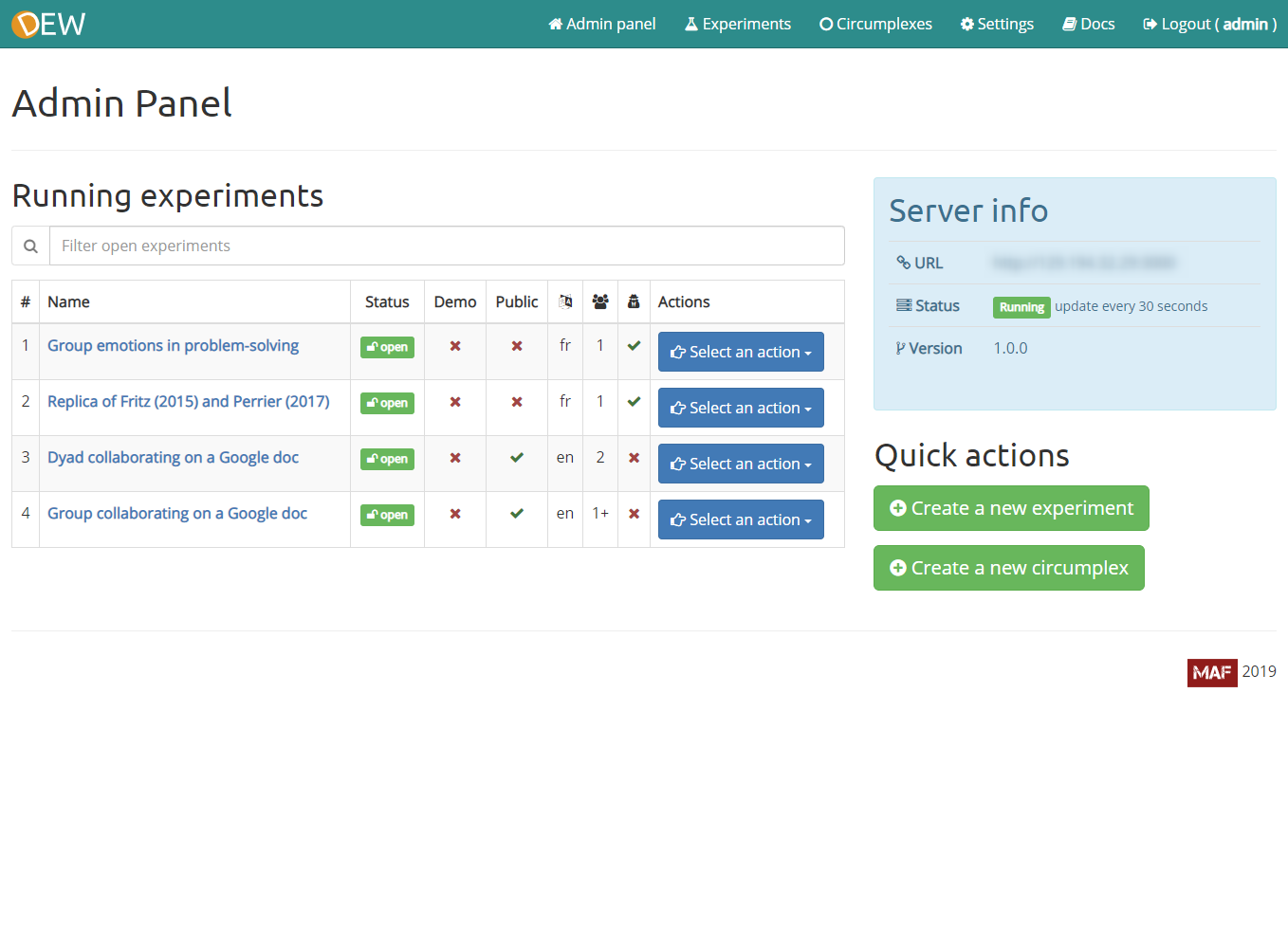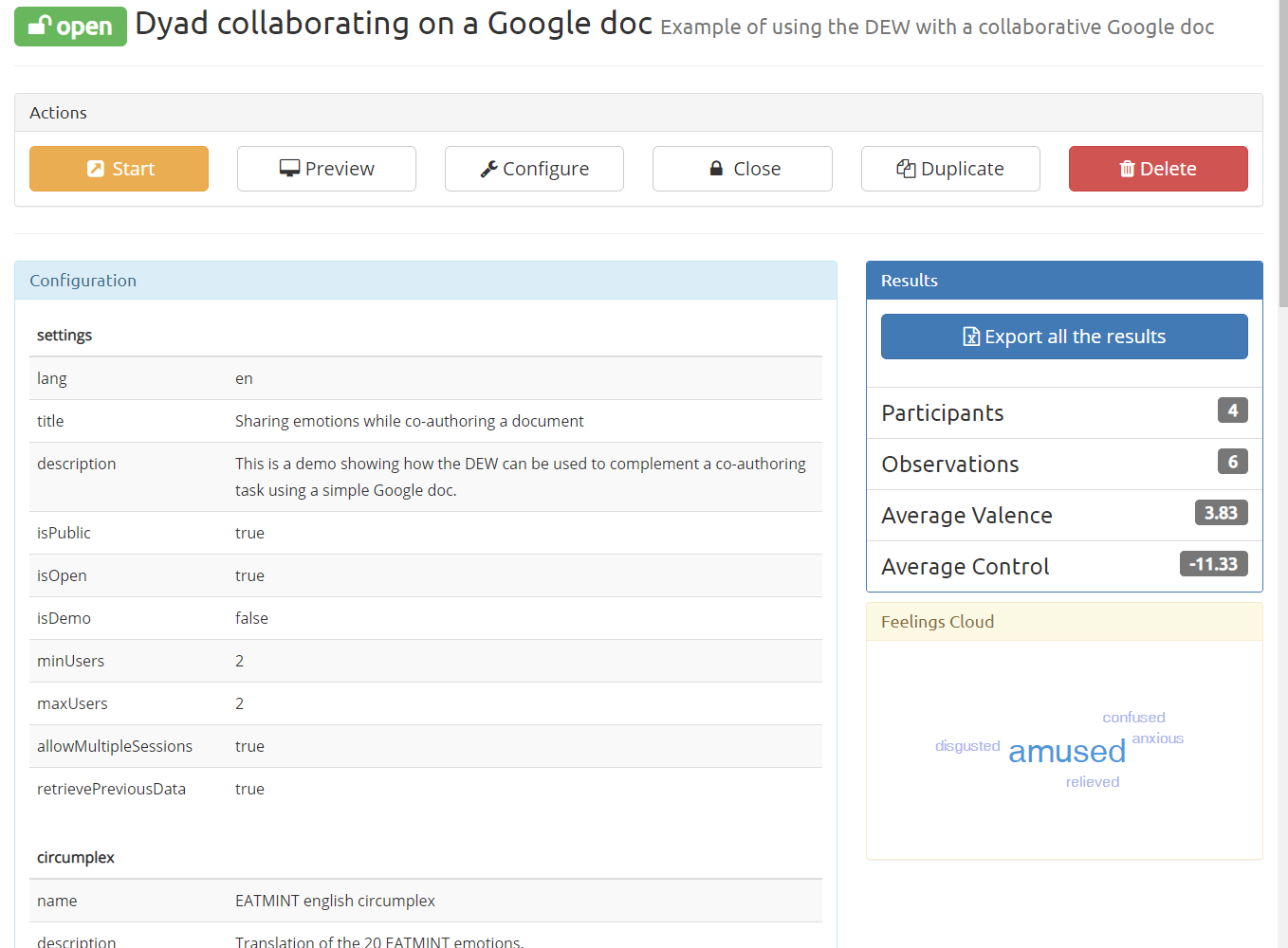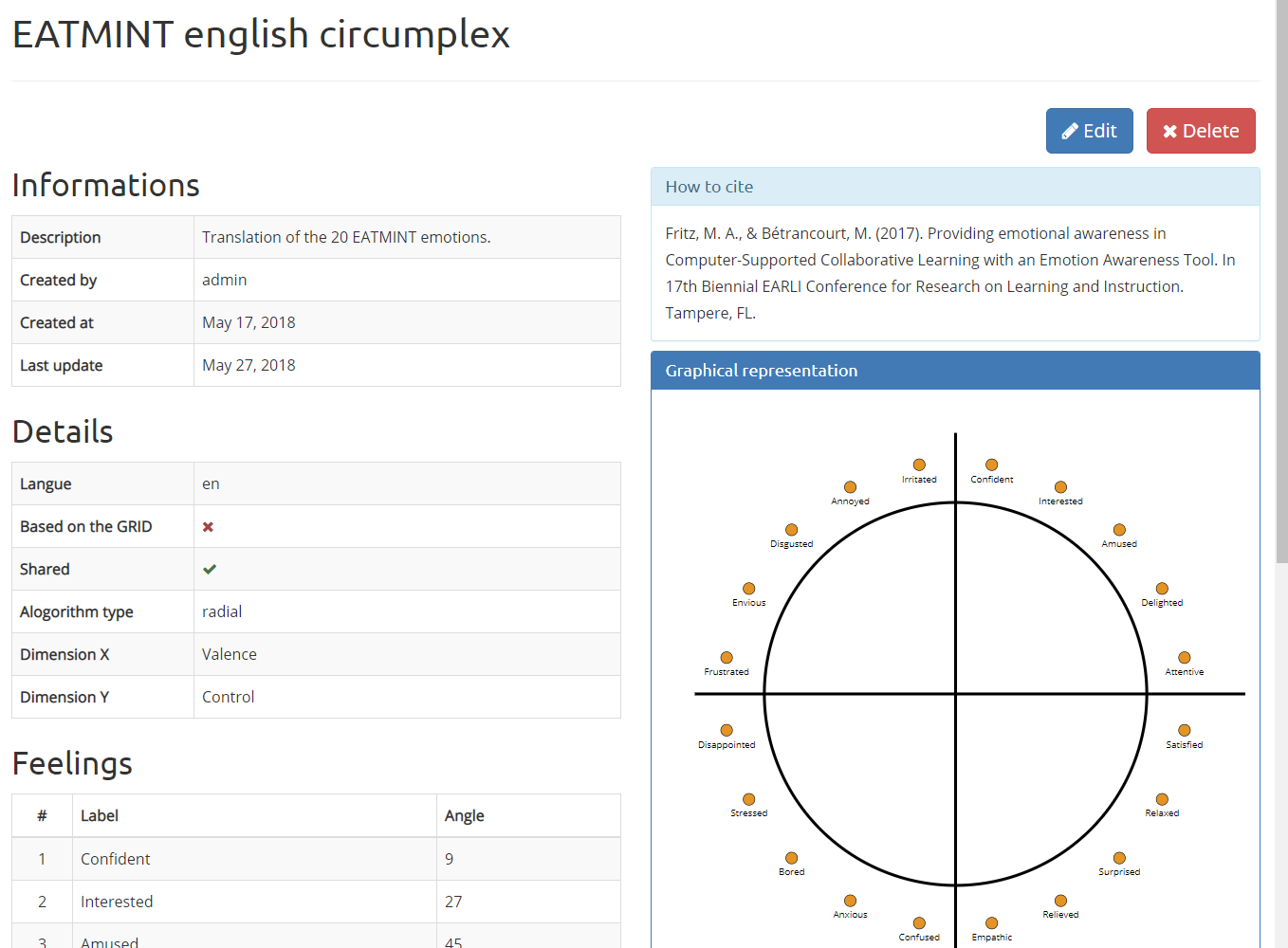Dynamic Emotion Wheel
The Dynamic Emotion Wheel is an emotion self-report and awareness tool primarily thought for research in the fields of Computer-Supported Collaborative Learning and Affective Sciences.
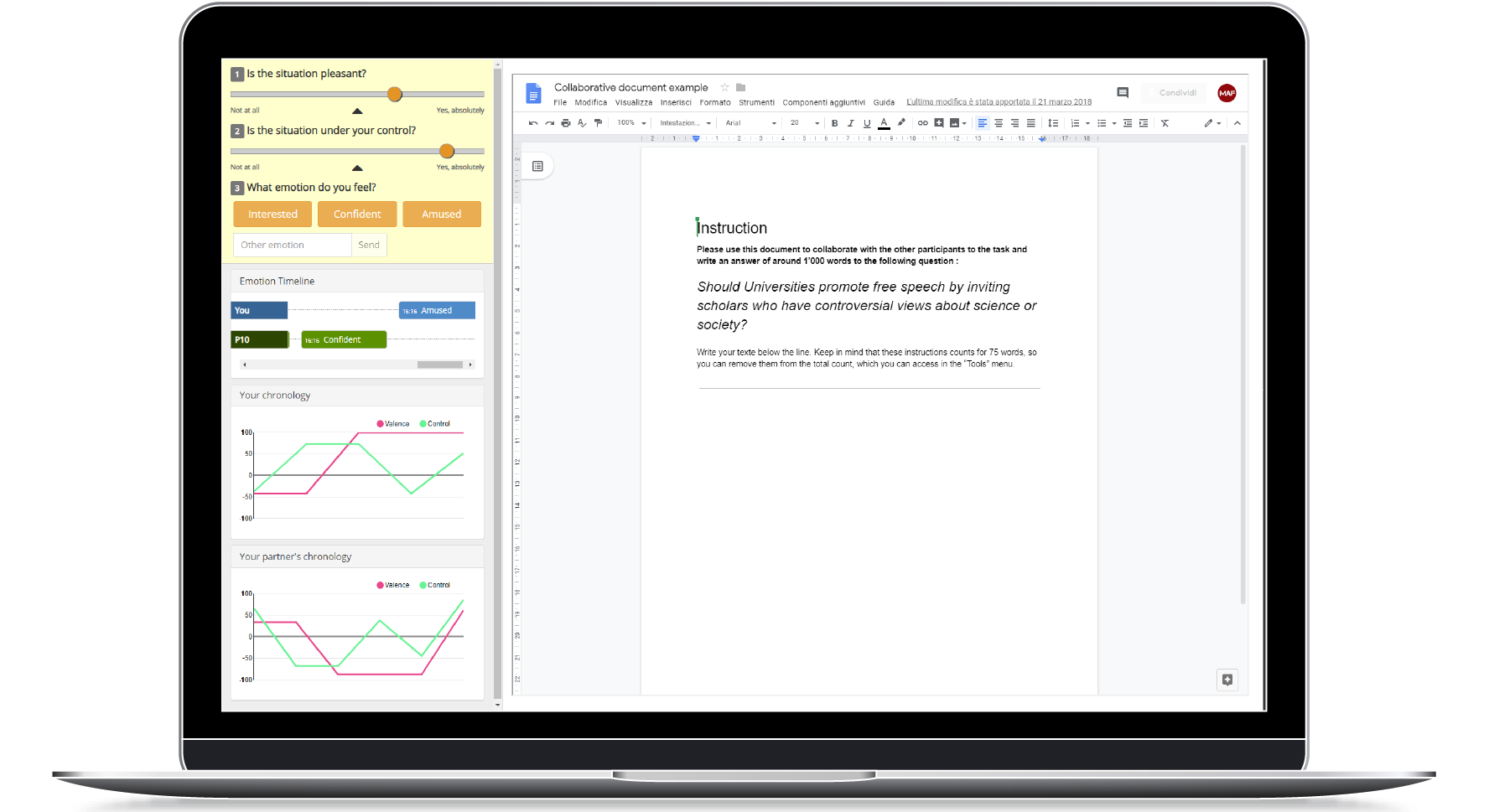
Find out more about the Dynamic Emotion Wheel.
A Research Toolbox is available for researchers interested in the use of the tool.
The DEW aims at implementing open-science practices.
About
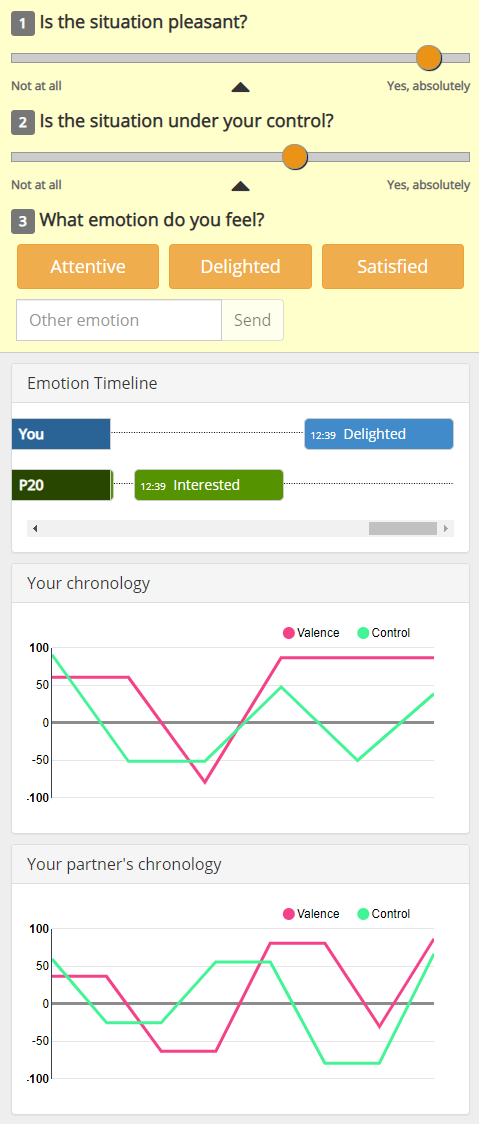
The Dynamic Emotion Wheel (DEW) is a web application allowing users to report and share their emotions during a computer-mediated task.
- Inspired by the Geneva Emotion Wheel, the tool combines the two most widely adopted approaches to emotion self-report: the dimensional and discrete emotions approaches.
- Rooted in the Component Process Model theoretical framework, the tool adopts appraisal criteria and subjective feeling both for self-assessment and data visualization.
- Appraisal and subjective feelings are directly linked: the tool computes a subset of "most likely" discrete emotions according to a quantitative evaluation on two-dimensional criteria (e.g. Valence and Control/Power).
- Participants to a collaborative task can follow both their own and their partner's evolution of emotional episodes over time (awareness).
- The tool is meant to be flexible and extensible to different experimental contexts and applications.
A prototype of the tool has been at first developed as part of the Emotion Awareness Tools for Mediated Interaction (EATMINT) project, whose aims included the development of emotion awareness tools (EAT) to improve the collaborative processes and outcomes of people working together through computers.
The DEW is currently maintained by Mattia A. Fritz at TECFA, Geneva University, as part of his PhD thesis directed by Prof. Mireille Bétrancourt.
Research Toolbox
The Research Toolbox, currently in beta testing, is a user-friendly environment where researchers can customize and set-up a version of the DEW according to their needs and interests.
Open Science
The DEW aims at implementing open-science practices in terms of transparency and reproducibility. For the time being, though, the code of the tool is not ready to be publicly available, but can be shared upon request.
Contacts
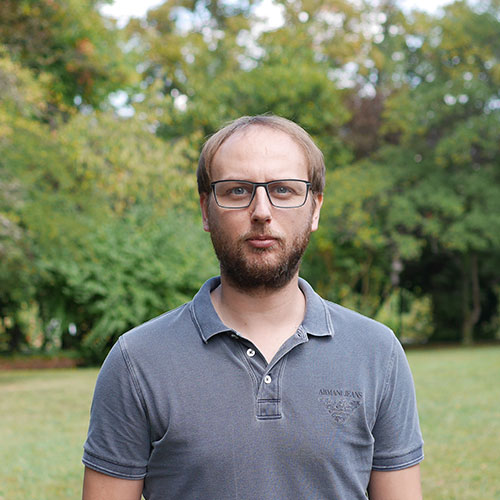
For any question or request, please contact Mattia A. Fritz. Letters are welcome in English, French and Italian.
-
TECFA - FPSE
Université de Genève -
Bureau 502
42 bd Pont-d'Arve
CH-1211 Geneva 4, Switzerland -
Phone:
+41 22 379 03 87
Email: Mattia.Fritz@unige.ch
